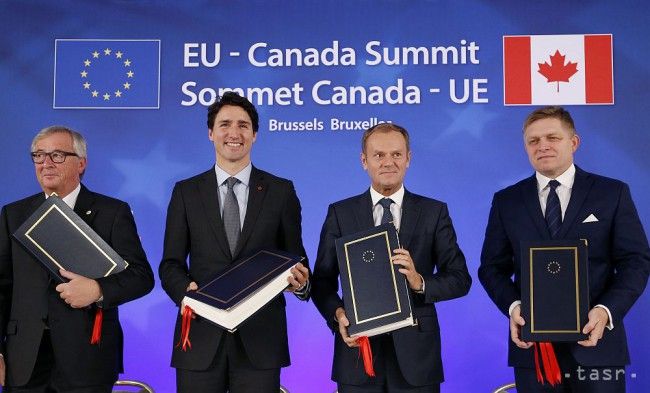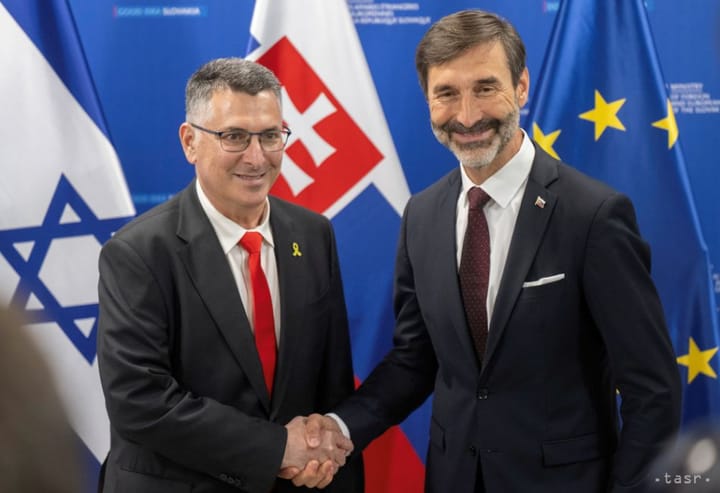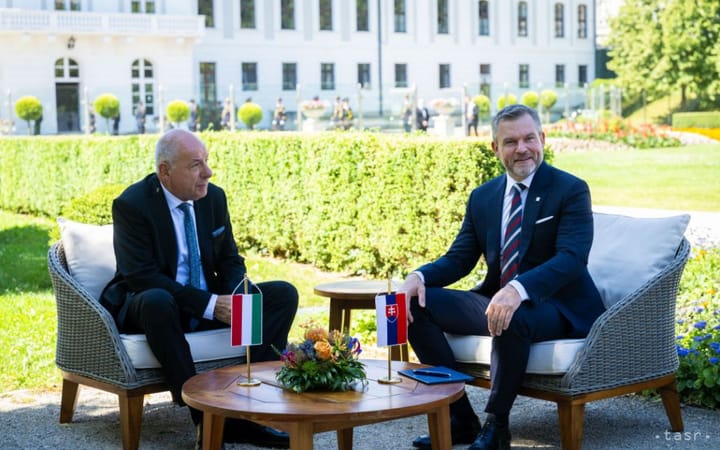Fico: Let's Rejoice at the Inking of CETA Trade Agreement

Brussels, October 30 (TASR) – Canadian Prime Minister Justin Trudeau, European Council President Donald Tusk, Slovak Prime Minister Robert Fico – representing Slovakia as the country presiding over the Council of the EU – and European Commission President Jean-Claude Juncker signed the European-Canadian CETA trade agreement at 2 p.m. in Brussels on Sunday.
The ceremony was also attended by Slovak Economy Minister Peter Ziga.
“Let’s be glad that such a progressive and good trade agreement, which can serve as an example for other countries in the world, has seen the light of the day,” Fico said after the conclusion of the EU-Canada summit.
According to Fico, the mood of Sunday talks showed that the inking of CETA represents an enormous success, as the treaty is beneficial for both sides. He pointed out that the negotiation process, which began in 2009 and during which Slovakia submitted its comments, was marked by the negative stance of Belgian Wallonia region in its final stages, although there was no revisiting of the treaty’s fundamental text.
The Slovak Prime Minister also emphasised the Slovak Presidency’s role in the process, as it convened the extraordinary session of the EU Council for Economy in Luxembourg on October 18 at the initiative of minister Ziga, where the consent for CETA was secured from 27 EU member states.
“This is an important free trade agreement between the EU and Canada. It will provide new opportunities not only for trade, but also for investments and the creation of new jobs,” said Fico, who praised Canada for being forthcoming to objections of individual European countries.
Fico also pointed out that CETA still needs to be passed by the European Parliament and ratified by national parliaments of the EU member states. Until then, only those CETA clauses will be put in effect that fall under the remit of the EU. “We don’t expect any serious problems, however, as the countries have already voiced their objections and since these were already accommodated for, we are confident that the national ratification process will run its course quite successfully.”



